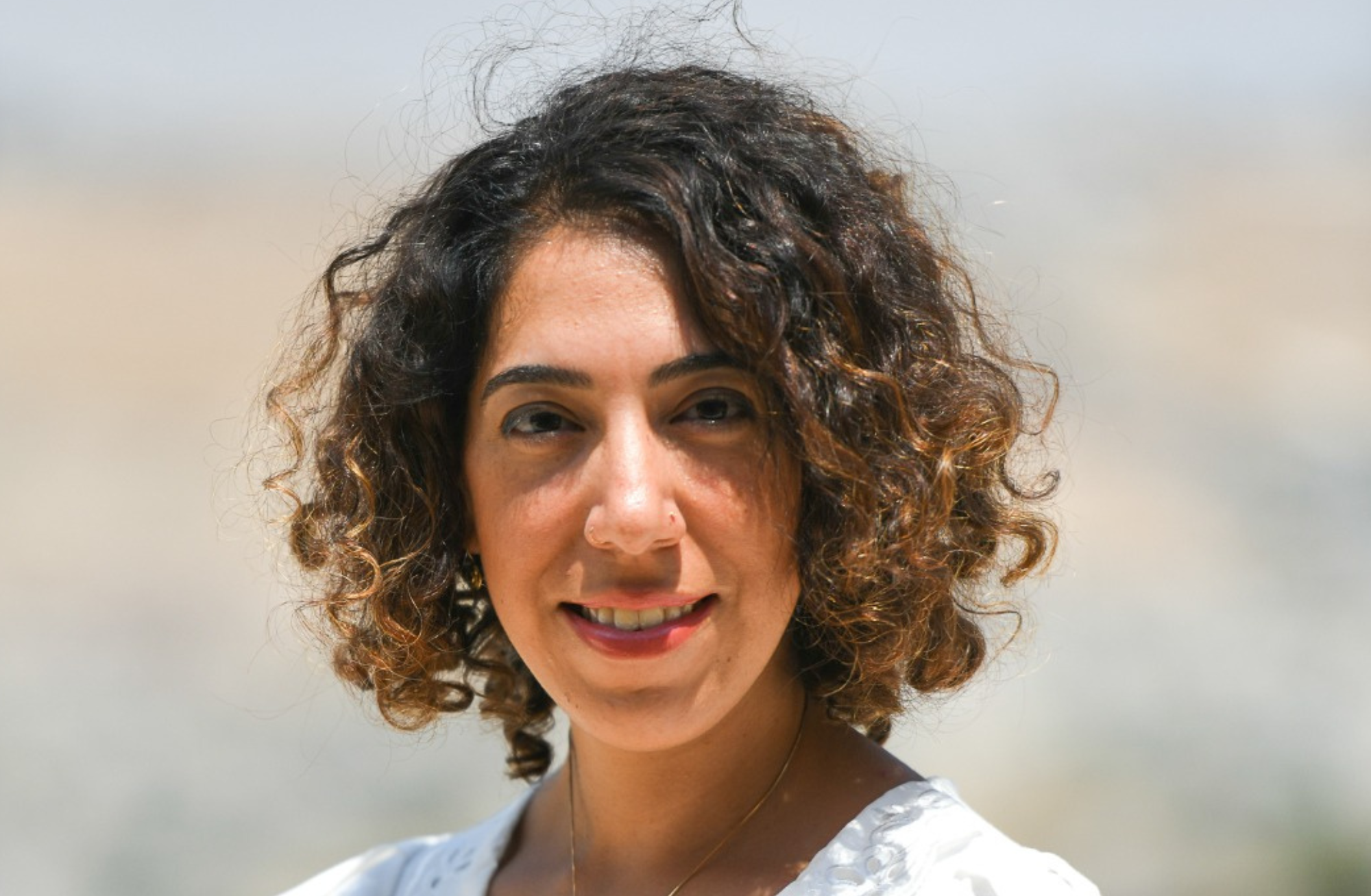2023 Featured Activists: ADI TUFIK
(Part One)

Meet Adi Tufik, Head of Donor Relations at NIF Israel and Activist at Free Jerusalem
Tell us about your personal background: where were you born and what was your life like growing up?
I have lived in Jerusalem all my life, grew up and went to school, the army, and then Hebrew University. I am a third generation Jerusalemite. My father’s parents made aliyah in the 1930s and mother’s family in the 1950s, all from Iraq.
At this phase in my life I feel that Jerusalem is the place where I can really make a difference as an activist, as Jerusalem is a microcosm of Israel with so many different kinds of people. It feels like I would be detached if I were an activist in Tel Aviv. Living in Jerusalem is part of what brought me to be an activist in Free Jerusalem.
Just growing up during the Second Intifada, there was a lot of fear of Palestinians. People would get off the bus in fear of a terrorist attack as soon as they heard Arabic. The first time I actually met a Palestinian was at the age of 23 when I worked in a supermarket and was surrounded by Palestinian workers. They were my age and I already knew Arabic and was thus able to make a connection.
My family is very political and used to be very right wing. I think mostly influenced by me, they have now really changed their minds about the occupation. Today they are active in the demonstrations against the judicial overhaul.
What was your “ahah” moment that made you want to get involved in civil society and human rights work?
I had several.
My work as NIF Head of Donor Relations has given me the opportunity to meet Jews from all over the world. It is very moving and challenging to investigate the relations between Jews living abroad and Israelis. It took me awhile to get over my prejudices about them coming to Israel for a couple of weeks, expressing their opinions and then going back. Today I really respect their views, opinions, and experiences.
Through me, NIF supporters get to know our work and what is really happening here. I feel like I have a real say in how these people see Israel and what they are exposed to. I feel I can make an impact. I always make sure that there is an East Jerusalem tour. I love my work because it gives me an opportunity to investigate new initiatives in Israel and I get to work with people from all over the world and learn about the different communities. I learn so much from my direct connections. Each supporter has her own unique connection to Israel and I love to hear their stories.
The first time when I heard about the struggle in Sheikh Jarrah was one day when I dropped off one my coworkers who lives there and I saw the demonstrations for the first time.
Later, while taking a study tour in the South Hebron Hills, we heard from a Palestinian who gave a presentation from one of the villages there used harsh words including “ethnic cleansing.” I felt this was an exaggeration until one of the people on the study tour read me the definition in the dictionary. I was shocked to discover that it described the situation to a tee.
Tell us about your professional background. What did you study? What led you to start working with Free Jerusalem and what do you find most meaningful about the work?
I studied for my BA in Art History at Hebrew University and one of my classes was on Islamic Art. I used to sit in my class on Mt. Scopus and gaze at the Dome of the Rock on the Temple Mount. I had never been there. Finally, one day I dressed in modest dress so I could go in there. I love the way Islamic Art comes to life in Jerusalem – it might be connected my roots but it is also part of my deep connection to Jerusalem.
Free Jerusalem is a group that works on East Jerusalem issues and connects them with the occupation. We are a grassroots group of several dozen members; we are all volunteers and there is no hierarchy. I got involved through Facebook and was drawn to them because it’s the only group that is really in the field.
In the summer of 2019 there was an increase in over-policing in Isawiya [a Palestinian neighbourhood in East Jerusalem] and a Palestinian youth was killed there. Free Jerusalem started to patrol Isawiya and I kept following them on Facebook for six months. I kept thinking I should join them but I wasn’t sure of myself. Then I met someone who told me about her patrol shift and she encouraged me. I thought “I can’t sit at home any longer and just read about it on Facebook.”
My first patrol was scary because I had never been in that neighbourhood before. Isawiya is known to be more nationalistic and I had seen it from the campus as it’s adjacent to the university. During that first shift the police actually sprayed tear-gas. I felt like for the first time I understood the reality with my own eyes. Our presence really does decrease over-policing and violence.
At the end of the day, I am so privileged compared to the Palestinians — both as a woman and a Jew. It is really important to take advantage of that privileged status to try to help them.
Get updates in your inbox
Sign up for our email newsletter and receive the latest news, invitations to events, and progress updates.
